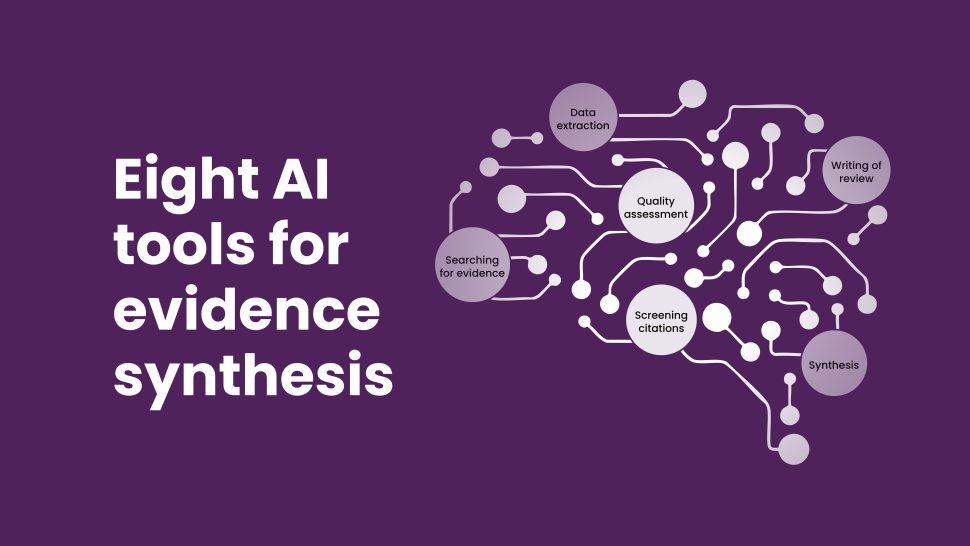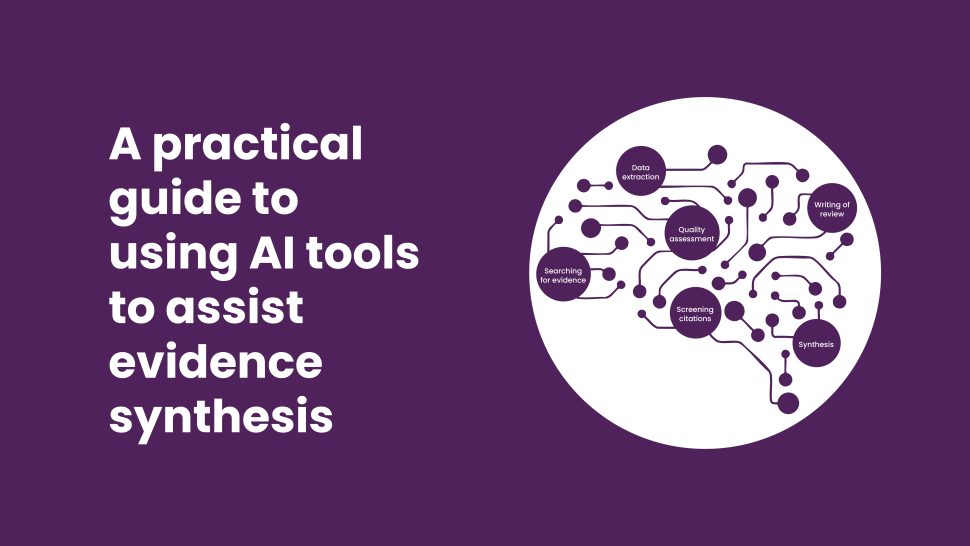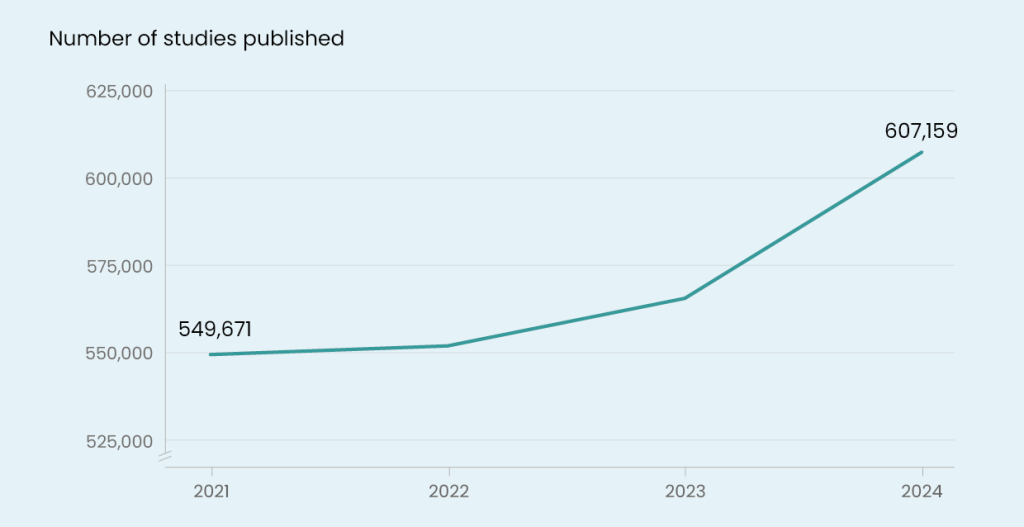Faster, lighter, better?

Introducing two new practical resources to explain how artificial intelligence can support evidence synthesis
Researchers are very familiar with the significant time and effort needed to conduct literature reviews or any form of evidence synthesis. The process involves developing search strategies that often return thousands of citations, which need to be checked for relevance and key data pulled out. At present, maintaining high-quality evidence synthesis is challenging, particularly given the exponential rate at which articles are published, particularly around health and care topics. Increasingly, review findings are becoming out-of-date quickly because of the volume of publications. So how can we make evidence synthesis more efficient while maintaining academic rigour?
Artificial intelligence (AI) is transforming evidence synthesis, making it both faster to complete and lighter in workload. Stages like title and abstract screening and data extraction are well-suited to automation and have been studied over the past decade (1). Automated methods like priority screening have substantially reduced screening workload (2). Many existing screening tools use Machine Learning (ML), and at the Health Equity Evidence Centre, we have been using EPPI-Reviewer to search, classify, and build living evidence maps around strategies to address health and care inequalities.
In recent years, large language models (LLMs) have provided more opportunities to automate parts of the evidence synthesis pathway. Generative LLMs such as ChatGPT, Gemini, and Claude have provided researchers with broader task assistance with its summarisation and text processing abilities. However, these newer AI tools present risks to evidence synthesis integrity that require careful consideration.
Given the rapidly evolving landscape of AI tools, our team has created two resources to help researchers navigate the use of AI for evidence synthesis. Based on our research, funded by the Health Foundation, we mapped the current landscape of automation tools and prioritised eight to explore in-depth, profiling their functions, technical specifications, and strengths and limitations. Our tool profiles also include a comparison table and “Best for…” to enable researchers to select the most appropriate tool for the task.
We also developed a practical guide for using AI in evidence synthesis, drawing on insights from an experiment that trialled semi-automated and fully automated approaches. This guide provides practical tips and insights, with particular attention to the appropriate use cases of generative AI.
References
- Scotti KL, Young S, Gainey MA, Lan H. Artificial Intelligence and Automation in Evidence Synthesis: An Investigation of Methods Employed in Cochrane, Campbell Collaboration, and Environmental Evidence Reviews. Cochrane Evid Synth Methods. 2025;3(5):e70046.
- Chappell M, Edwards M, Watkins D, Marshall C, Graziadio S. Machine learning for accelerating screening in evidence reviews. Cochrane Evid Synth Methods. 2023 Jul 20;1(5):e12021.
Related resources

Eight AI tools for evidence synthesis: Case studies and comparisons
This tool presents an independent assessment of eight AI tools designed to support evidence synthesis. Each case study summarises the tool’s capabilities, research evidence, and HEEC’s practical experience to guide researchers in selecting the most appropriate solutions for their reviews.

A practical guide to using AI tools to assist evidence synthesis
This practical guide supports researchers in using AI tools to assist with evidence synthesis while maintaining rigour and quality. Drawing on real-world case studies and research conducted by the Health Equity Evidence Centre, it provides practical advice on integrating AI responsibly across all stages of the synthesis process.

